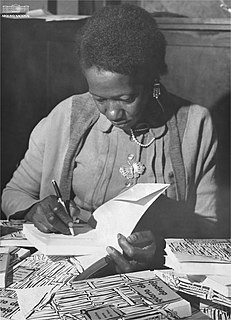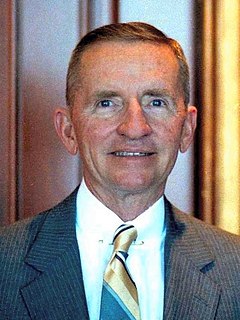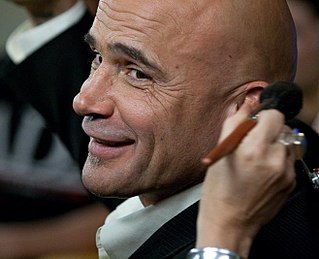A Quote by Vaclav Klaus
The message of [Fahernheit 9/11] is very weak and propagandistic ... We were used to such messages in the communist days. Everybody has open eyes and can understand that this is propaganda. It was a weak film that tells us nothing new.
Related Quotes
In the sublime days before 11 September 2001, when the powerful were routinely attacking and terrorising the weak, and those dying were black or brown-skinned non-people living in faraway places such as Zaire and Guatemala, there was no terrorism. When the weak attacked the powerful, spectacularly on 9/11, there was terrorism.
The thing that impressed me then as now about New York… was the sharp, and at the same time immense, contrast it showed between the dull and the shrewd, the strong and the weak, the rich and the poor, the wise and the ignorant… the strong, or those who ultimately dominated, were so very strong, and the weak so very, very weak - and so very, very many.
I always thought love made you stupid. Made you weak. A bad Shadowhunter. 'To love is to destroy.'I believed that[...]I used to think being a good warrior meant not caring,[...] And then I met you. You were a mundane. Weak. Not a fighter. Never trained[...] Love didn't make you weak, it made you stronger than anyone I'd ever met. And I realized I was the one who was weak.
A war film can be propaganda and they're very valuable as propaganda, as we realized in Britain in the Second World War. Film as propaganda is a very valuable tool. It can also demonize, which is the dangerous side of a war film as propaganda. But there are war films that are not propaganda. It's just saying 'This is what it's like.' For 99 percent of us we don't know what it's like. We have no idea. So to reveal that to the audience is powerful.
I hate political films that have one particular message that they're trying to convey. I think propaganda is very dangerous, and it's very easy for anything to slip into it. I also think that propaganda is something that defies the identity of cinema. I hate propaganda in cinema, even if it was promoting the political stance that I myself am allied with. I always say that the responsibility of a film is first and foremost: To be a film. It's not a manifesto, it's not an op-ed.
It is weakness, says the Vedanta, which is the cause of all misery in this world. Weakness is the one cause of suffering. We become miserable because we are weak. We lie, steal, kill and commit other crimes, because we are weak. We die because we are weak. Where there is nothing to weaken us, there is no death nor sorrow. We are miserable through delusion. Give up the delusion and the whole thing vanishes.
No two things differ more than hurry and dispatch. Hurry is the mark of a weak mind, dispatch of a strong one. A weak man in office, like a squirrel in a cage, is laboring eternally, but to no purpose, and is in constant motion without getting on a job; like a turnstile, he is in everybody's way, but stops nobody; he talks a great deal, but says very little; looks into everything but sees nothing; and has a hundred irons in the fire, but very few of them are hot, and with those few that are, he only burns his fingers.












































